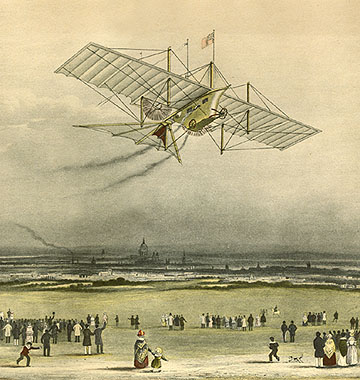I've always thought it was 60/40 that Trump would find an excuse to cancel at the last moment.
— James Fallows (@JamesFallows) June 24, 2024
(Hey, I see why pollsters like using these percentages for predictions. You can't ever be wrong!) https://t.co/b94XhLD0Dc
LOL!!! MAGA REALLY doesn’t want Trump to debate. Steve Bannon is now saying that if CNN doesn’t apologize to Trump’s spokesperson for ending her interview, then Trump shouldn’t debate. They’re coming up with every excuse possible. It’s so embarrassing! pic.twitter.com/2UJYRF1CIf
— Harry Sisson (@harryjsisson) June 24, 2024
Why would they be worried?
He’s not ok. This is very unsettling. https://t.co/iE8fnRiFk0
— Barry R McCaffrey (@mccaffreyr3) June 23, 2024
The key to understanding Trump's speaking style has always been to think of him in terms of a second tier Vegas insult comic, at least on the level of a Jack Carter. This is not damning with faint praise. It takes an unusual level of real talent work a crowd for an hour or more the way the former president does. Some of his crazier quotes actually do make sense as part of a Vegas lounge riff when you hear them in context. By the same token, many of the things that he and his followers have tried to explain away as jokes such as the Nancy Pelosi/Nikki Haley confusion are even more obviously brain glitches when you actually listen to the clips, and those brain glitches have been getting more common.
WHUT?
— Victoria Brownworth (@VABVOX) June 22, 2024
If there were tents in airports (how would this even be legal?!)--even one--it would be on the news, folks. This is just more crazy like the windmills and the sharks and the EV batteries in a wagon. pic.twitter.com/ht6dWa8CuL
"A washing machine to wash your dishes"
BREAKING: In a terribly embarrassing moment for Trump, Fox News has to cut away from his speech because he isn’t making any coherent sense. It’s beyond clear Trump is senile. Retweet so all Americans see this. pic.twitter.com/ocaQRFR3XW
— Biden’s Wins (@BidensWins) June 23, 2024
This has also been getting some news.
"One said to me, 'He could not keep a thought straight. He would go in one direction and then go into another direction.'"
— The Intellectualist (@highbrow_nobrow) June 14, 2024
WATCH: @andrewrsorkin says some business leaders expressed concern after meeting with Donald Trump yesterday.
pic.twitter.com/KQbLNyE02x
One of the lessons of 2016 was that non-endorsements of Donald Trump aren't all that significant, but for a Republican this is still remarkable.
BREAKING: In a stunning announcement, Chief Executive Leadership Institute CEO Jeffrey Sonnenfeld says there will not be one Fortune 500 CEO supporting Donald Trump. This is wholly unprecedented. Retweet so all Americans see this shocking news. pic.twitter.com/X6w4OQFwqO
— Biden’s Wins (@BidensWins) June 24, 2024
On an unrelated note.
Trump calls for business leaders to be fired if they don’t support him. Pretty fash! pic.twitter.com/54s9Mmph7y
— Aaron Rupar (@atrupar) June 18, 2024
At least Trump still as the nepo-baby support.
From the FDR library. The more things change … https://t.co/NrX92MZri2 pic.twitter.com/6MjEEUgeuJ
— David Lyle (@redclayprodigal) June 21, 2024
I seem to recall us telling idealists in the education reform movement around a dozen years ago not to put too much trust in some of their allies
Charters and vouchers get lumped into the same school privatization pile. But this shows you how vulnerable charters are. Advocates threw their lot in w/ right ring groups that turn out not to care so much about the *civil rights issue of our time* pic.twitter.com/2BSmHPFXug
— Jennifer Berkshire (@BisforBerkshire) June 24, 2024
some of these betting markets are borderline fan fiction lol. doesn’t help that many of them are illegal in the US and UK, where much of the smart money is https://t.co/VPgjHMAsrH
— G Elliott Morris (@gelliottmorris) June 16, 2024
Anyone else getting a no more Mr. nice guy vibe from recent Democratic campaign ads?
This is kind of brilliant. Lauren Boebert’s Democratic political opponent John Padora films campaign ad in the exact same Denver theater seat Boebert got kicked out of for vaping and groping. pic.twitter.com/i1ZJFhk2zm
— Mike Sington (@MikeSington) June 22, 2024
Yes, the Republicans still have a vetting problem.
Hovde belittles Native Americans, says socialism is to blame for alcoholism, depression rateshttps://t.co/hTm7OzvWro
— Heartland Signal (@HeartlandSignal) June 3, 2024
Then there's this.
The bank he leads, Utah-based Sunwest, last month was named as a co-defendant in a California lawsuit that accuses a senior living facility partly owned by the bank of elder abuse, negligence and wrongful death.
And possibly a reverse coattails problem.Hovde reaches out to seniors: “If you’re in a nursing home, you only have a 5, 6-month life expectancy. Almost nobody in a nursing home is in a point to vote.”
— John Nichols (@NicholsUprising) April 9, 2024
Hovde reaches out to young voters: “Kids haven't been taught the same work ethic that the Baby Boom generation has.” pic.twitter.com/NfuZLphufT
Don the Dove
Sorry, I was told by Twitter that it was indefensible to vote for Biden in a swing state and that Trump could conceivably be to his left on Israel. https://t.co/nQQ7jiz6nD
— Lakshya Jain (@lxeagle17) June 4, 2024
The typical White family in New Orleans area has about 13 TIMES the wealth of the typical Black family — a massive racial wealth gap that dwarfs the national average.https://t.co/TiIedIuErK
— Patrick Wall (@patrick_wall) June 24, 2024
via @Desi_Stennett @NOLAnews
Marjorie Taylor Greene introduces an amendment to defund NATO: “America shouldn’t be funding NATO to help them fight their enemies”
— DNC War Room (@DNCWarRoom) June 4, 2024
(America is part of NATO) pic.twitter.com/mKWjlovXNz
NEWS: Kristina Karamo is asking the Court of Appeals to intervene and reinstall her as chairwoman of the Michigan GOP, less than a month before the Republican national convention and less than five months before the November presidential election. https://t.co/z2qqQagEsF
— Craig Mauger (@CraigDMauger) June 24, 2024
How about "alleges"?
— James Fallows (@JamesFallows) June 24, 2024
"Concocts claim" ?
"Levels specious charge"?
"Airs right-wing theory"?
(Lots of room to make the headline fit.)
Two guesses where this came from. pic.twitter.com/SjahQLXNm7
When the headline writer for the Onion calls something beyond parody...
Beyond parody pic.twitter.com/3v3ZKzYPjP
— alex furlin (@thefurlinator) June 12, 2024
For a NYT writer, when the narrative can't be reconciled with the facts, go with the narrative,
Why on earth does this myth persist? Biden never, not once, said he'd only serve one term if elected. He explicitly denied this several times when asked in 2020! https://t.co/PEX7vYXeek
— Matthew Chapman (@fawfulfan) June 11, 2024
AI
Then: Live Más
— Grady Booch (@Grady_Booch) June 3, 2024
Now: Inference More@tacobell https://t.co/d0GHf0WnUm
I find it actually pretty intriguing that ChatGPT can’t seem to generate well known paradoxical images or optical illusions. pic.twitter.com/cZSzGl0IiQ
— Colin Fraser (@colin_fraser) June 7, 2024
10/10, no notes. pic.twitter.com/5QrVtTW7n1
— Dare Obasanjo🐀 (@Carnage4Life) June 23, 2024
GPT-6 will have an advice blog on how to switch from academia to industry pic.twitter.com/5mvOl7r3dg
— Michael Baym (@baym) June 22, 2024
"There are two possible outcomes: if the result confirms the hypothesis, then you've made a measurement. If the result is contrary to the hypothesis, then you've made a discovery" - Enrico Fermi pic.twitter.com/oVvUOQBqNE
— Fermat's Library (@fermatslibrary) June 24, 2024
This is a perfect rundown of how the techno-optimist crowd thinks about fusion.
In the popular imagination of the tech community, fusion energy is a kind of magical free lunch that will solve all our problems. In reality, developing commercially viable fusion today would change next to nothing to the economics of energy production within the next 100 years.…
— François Chollet (@fchollet) June 24, 2024
Rep. Jack Kimble is about to be your new favorite politician on Twitter.
Biblical Judaism puts Moses's life as 1391–1271 BCE. The Code of Hammurabi wasn't written until 1758 BCE, nearly 500 years later https://t.co/fd54C3psF5
— Rep. Jack Kimble (@RepJackKimble) June 22, 2024
My account was apparently hacked. If anybody received a long rambling series of DMs from me between 3:11 and 4:38 last night begging you to take me back and saying that you were the only woman I ever loved and that I wanted to come over because you were soooo pretty! Please do…
— Rep. Jack Kimble (@RepJackKimble) June 22, 2024
Why are the Democrats so determined to fund a terrorist organization like the IVF?
— Rep. Jack Kimble (@RepJackKimble) June 15, 2024
Hey everybody,
— Rep. Jack Kimble (@RepJackKimble) June 24, 2024
I hope you are having a great Monday. Last week, this account made a pretty unpopular post demanding that people buy Trump media stock or face legal action. I later explained to everybody that after a combination of sloe gin fizz and horse tranquilizers I was…
Always read the bio before replying.

lol yes
— Rep. Jack Kimble (@RepJackKimble) June 24, 2024
Largest known prime in each century pic.twitter.com/VdjosOzaB2
— Fermat's Library (@fermatslibrary) June 19, 2024
10. An interior photo of a passenger plane in 1930 pic.twitter.com/YOV9Qyo0mf
— James Lucas (@JamesLucasIT) June 23, 2024
12. A policeman in San Francisco scolds a man for not wearing a mask during the 1918 Pandemic. pic.twitter.com/zx4WbzJasN
— James Lucas (@JamesLucasIT) June 23, 2024
Cats have a precise method of walking called direct registering.. 👌 pic.twitter.com/olMJ9LLx2j
— Buitengebieden (@buitengebieden) May 23, 2024
Barkour.. 💪 pic.twitter.com/pDTHFZB64N
— Buitengebieden (@buitengebieden) May 23, 2024
Sauron the Economist -https://t.co/6FN3nECDZA pic.twitter.com/IvXKE1ymOD
— Existential Comics (find me on bluesky) (@existentialcoms) June 24, 2024
Smart duck.. 😂 pic.twitter.com/2eec4EYan1
— Buitengebieden (@buitengebieden) May 29, 2024
Mock if you will, but I find this genuinely encouraging.
1 year ago on Rampage, Harley Cameron tried to seduce Anthony Bowens before Bowens said “I’m Gay” as Max Caster/Billy Gunn jumped in joy... and the Chicago crowd chanted “He’s Gay!” to Bowens.
— Drainmaker 🌧️ 💵 (@DrainBamager) June 23, 2024
A very wholesome and progressive moment in pro wrestling. 🏳️🌈 pic.twitter.com/9U8eJW34LT




